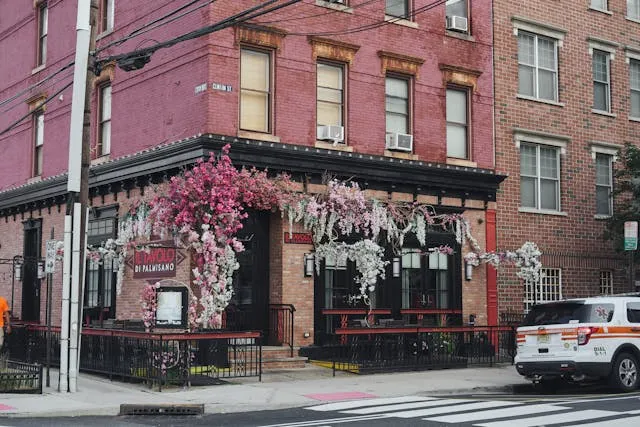Chennai Metro Expansion Driving Surge in Citywide Property Demand
The Chennai Metro has become one of the city’s most transformative infrastructure projects in recent years. With each new phase of expansion, it is reshaping travel patterns, cutting down commute times, and influencing residential and commercial property trends. The impact of this growing network extends well beyond transportation—it is steadily altering the dynamics of property demand across various parts of the city.
Also Read: How Interactive Team Building Boosts Office Morale And Productivity?
Better Connectivity, Higher Property Interest
One of the most direct effects of the Metro expansion is the improvement in accessibility. Areas that were once considered distant or inconvenient are now emerging as attractive locations for homebuyers and investors. As new Metro lines extend across the city, these regions are becoming better connected to business districts and educational hubs. This improvement in accessibility naturally raises property demand in those neighborhoods.
For instance, localities around the upcoming corridors such as Madhavaram, Sholinganallur, and Siruseri have started witnessing an increase in buyer interest. The ease of reaching central zones without heavy traffic has made these areas suitable for professionals who prefer shorter travel times. This steady improvement in mobility plays a major role in driving residential and commercial growth.
Shift in Buyer Preferences
The ongoing Metro expansion has also influenced the preferences of modern homebuyers. Earlier, proximity to workplaces was the top priority. However, the growing Metro network has made it easier to live farther from office clusters while still enjoying quick commutes. As a result, many buyers are exploring new areas that were previously overlooked.
Developers have recognized this change and are actively launching housing projects near the Metro corridors. Apartments and gated communities are becoming popular choices since buyers now associate Metro connectivity with convenience and long-term value. This gradual shift in perception is reshaping the residential landscape across the city.
Boost in Property Value
Infrastructure development is often linked to appreciation in property prices, and Chennai is no exception. Locations that were once categorized as mid-range have started witnessing price corrections due to the increasing demand. Metro-linked neighborhoods are experiencing a steady rise in property values, especially as stations near completion.
Experts note that once operational, Metro lines tend to stabilize real estate demand and maintain consistent value growth. Investors see these areas as promising since public transport projects often create sustainable demand over time. Consequently, the expansion has positioned several developing suburbs as strong contenders for future growth in real estate.
Encouraging Commercial Development
The Metro expansion does not just benefit residential zones. It has also played a major role in promoting commercial developments across the city. Office complexes, retail spaces, and coworking hubs are increasingly planned near Metro stations to attract a working population that prefers public transport.
This change is particularly visible in stretches connecting the IT corridor and industrial zones. Businesses are finding it more convenient to operate near these transport routes since employees can reach workplaces faster. As more companies establish offices along the extended corridors, the local economy around these stations continues to strengthen.
Reduced Traffic and Improved Lifestyle
Another positive outcome of the Metro expansion is the reduction in road congestion. With more people shifting to the Metro for daily commutes, the city’s main roads have begun to experience slightly smoother traffic flow. This improvement contributes to a better quality of life, particularly for those living in neighborhoods adjacent to Metro routes.
Homebuyers now view Metro connectivity as an indicator of comfort and modern urban living. The reduced dependency on personal vehicles translates to lower fuel expenses and less travel fatigue. These subtle but significant lifestyle benefits have made Metro-connected areas more desirable among both families and working professionals.
Long-Term Impact on Urban Growth
The Metro’s influence is also visible in the way the city is expanding. New phases are guiding urban growth toward developing corridors. This has led to the planned growth of communities with access to reliable public transport, utilities, and social infrastructure. Over the next decade, Chennai’s expansion pattern is expected to follow the Metro lines, promoting balanced urban development rather than unregulated sprawl.
In particular, developers and homebuyers are giving attention to areas near proposed stations, anticipating future convenience and value appreciation. The gradual but steady growth of such regions signifies a strong connection between transport development and property demand.
Conclusion
The Chennai Metro’s expansion has become a decisive factor in shaping property demand across the city. Better connectivity, rising property values, and improved lifestyle options are making Metro-linked areas the preferred choice for both buyers and investors. Residential and commercial developments are aligning with this infrastructure progress, creating a more accessible and organized urban landscape.
As the next phases of construction move forward, the effect of this massive project is expected to extend even further. For those exploring properties in Chennai, the Metro expansion represents not just a transit improvement but a long-term opportunity for stable investment and comfortable living. The city’s future growth will continue to be closely tied to the expanding tracks of its Metro network.





